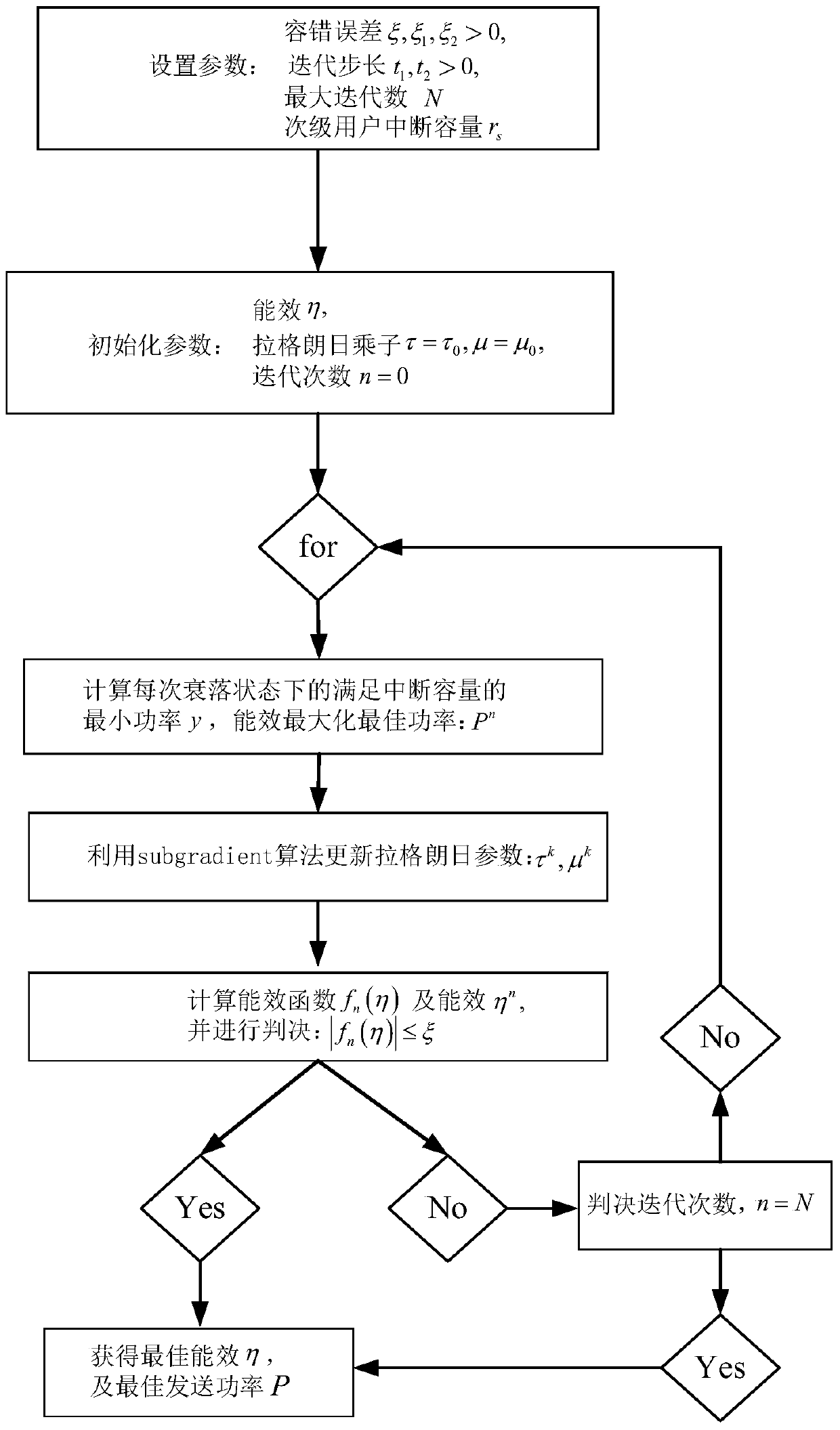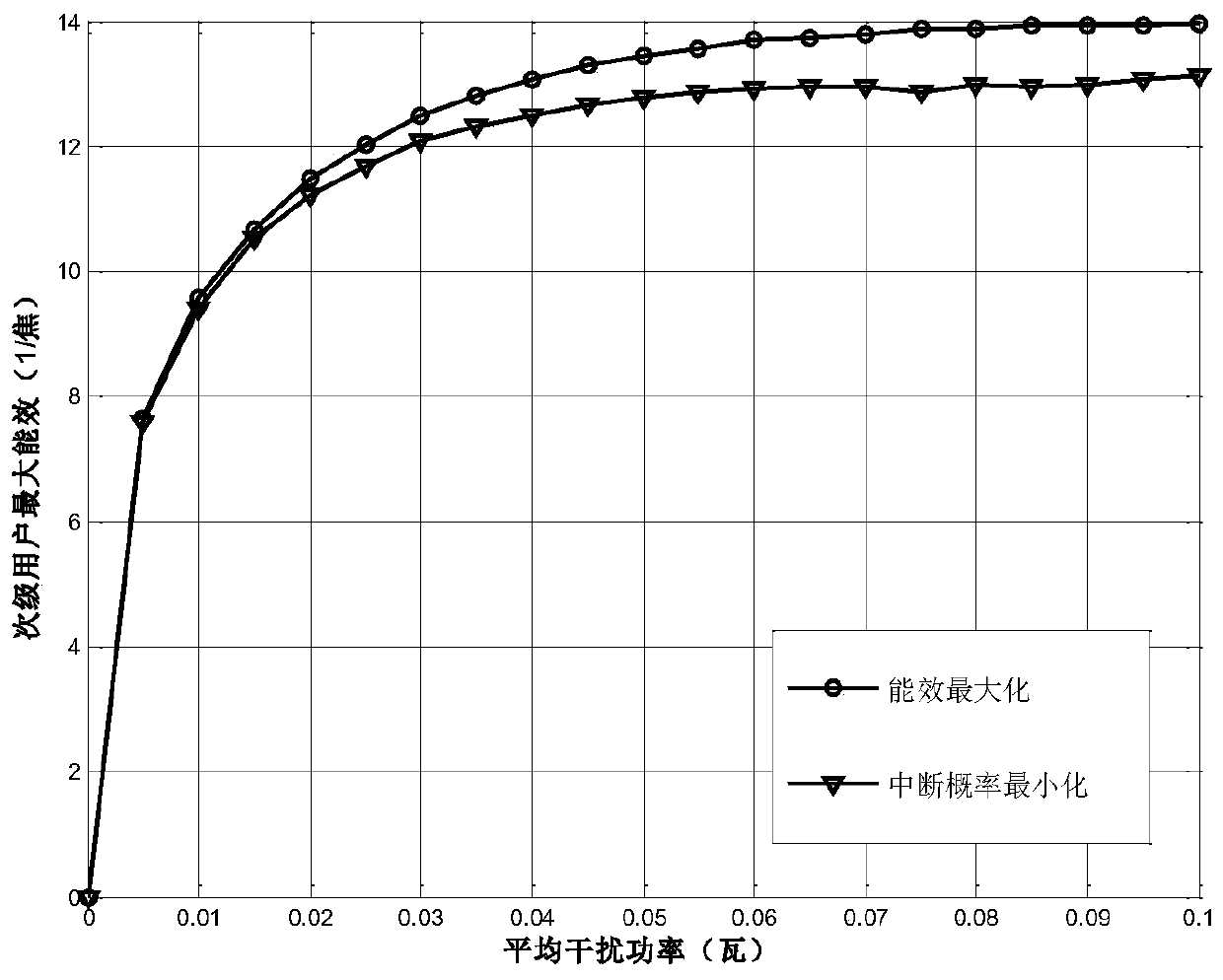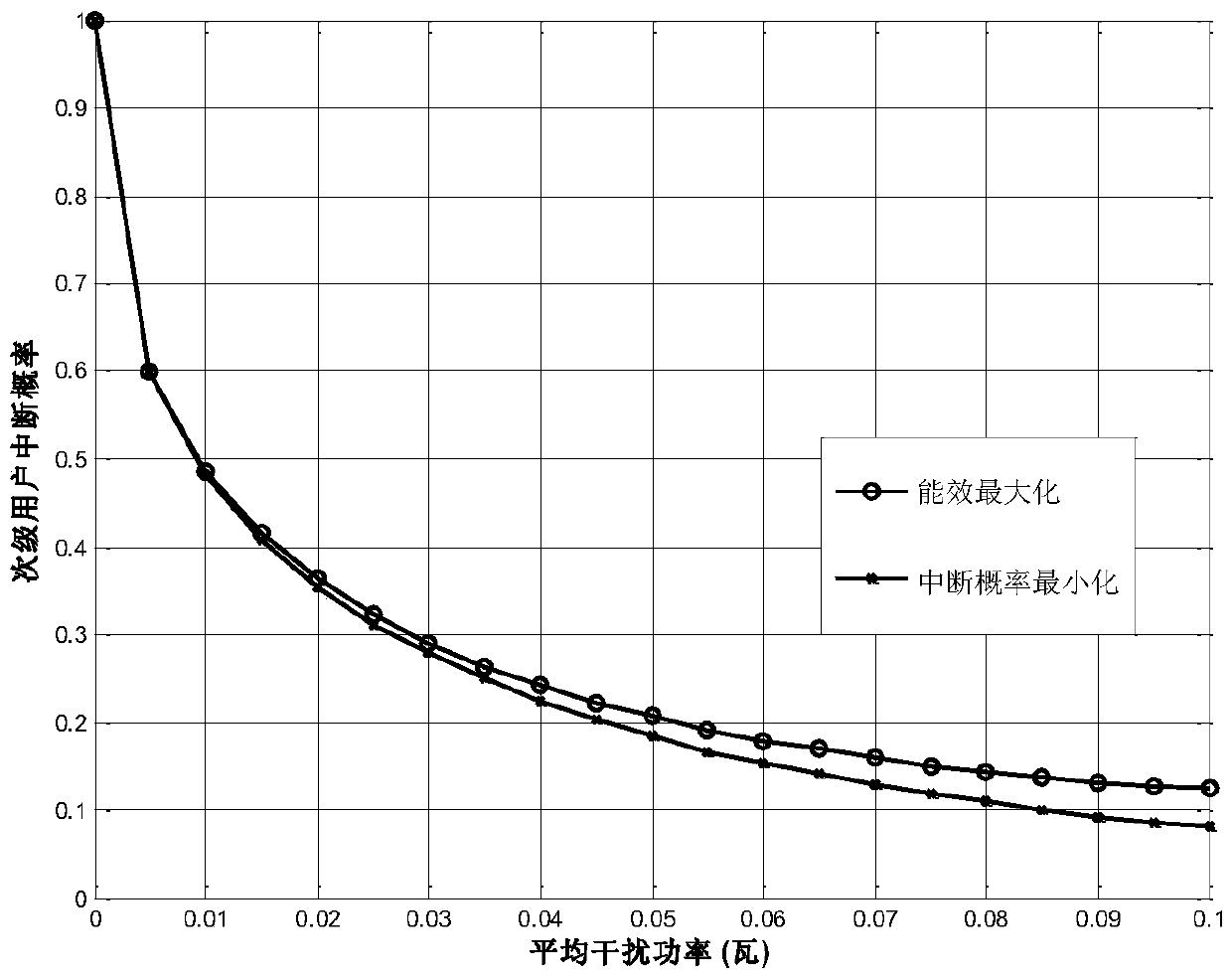Power allocation method with maximum energy efficiency based on outage probability
A distribution method and energy-efficient technology, applied in the direction of reducing energy consumption, advanced technology, network planning, etc., can solve the problems of energy waste, can not guarantee the maximum energy efficiency of secondary users, etc., to achieve the effect of low computational complexity
- Summary
- Abstract
- Description
- Claims
- Application Information
AI Technical Summary
Problems solved by technology
Method used
Image
Examples
Embodiment Construction
[0042] refer to figure 1 , the implementation steps of the present invention are as follows:
[0043] Step 1: Cognitive users set target parameters.
[0044] The secondary user sets the energy efficiency function error tolerance ξ>0 and the interruption capacity r s Bits / complex dimension, the maximum number of iterations N, the convergence error ξ corresponding to the average transmit power constraint 1 >0, the convergence error ξ corresponding to the average interference power constraint 2 >0, the Lagrangian multiplier iteration step size t corresponding to the average transmit power constraint 1 >0, the Lagrangian multiplier iteration step size t corresponding to the average interference power constraint 2 >0;
[0045] The smaller the error tolerance of the energy efficiency function, the more iterations may be needed, and the number of iterations also depends on the average interference constraint, the average transmit power constraint, the channel fading state, and t...
PUM
 Login to View More
Login to View More Abstract
Description
Claims
Application Information
 Login to View More
Login to View More - R&D Engineer
- R&D Manager
- IP Professional
- Industry Leading Data Capabilities
- Powerful AI technology
- Patent DNA Extraction
Browse by: Latest US Patents, China's latest patents, Technical Efficacy Thesaurus, Application Domain, Technology Topic, Popular Technical Reports.
© 2024 PatSnap. All rights reserved.Legal|Privacy policy|Modern Slavery Act Transparency Statement|Sitemap|About US| Contact US: help@patsnap.com










